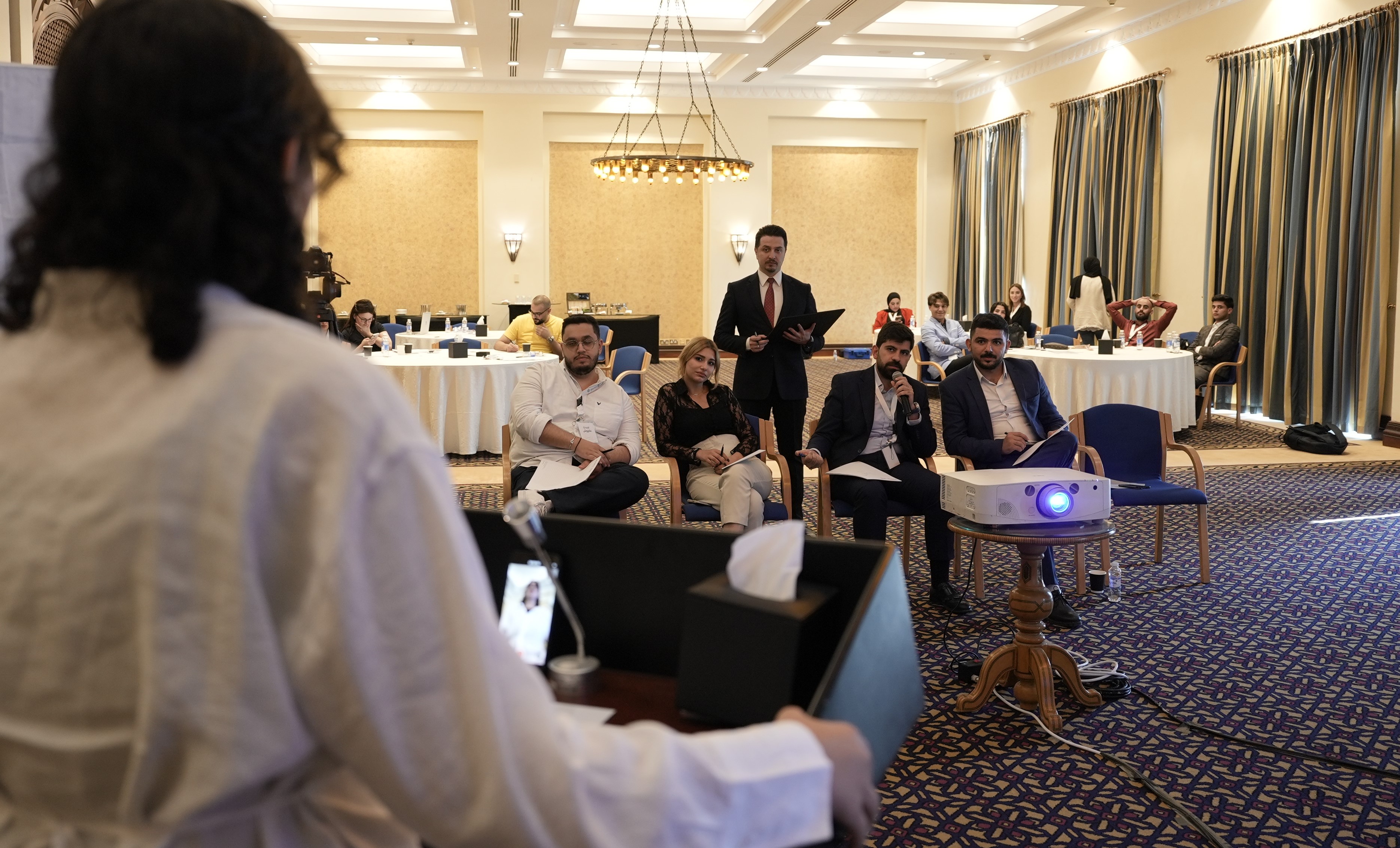Media Campaign Project
Unveiling the Pulse of Media Campaigns: Highlights from the Recent MediaWave Workshops

In a world where media wields enormous power over public opinion and electoral results, the MediaWave workshops have truly been a game-changer. Over recent weeks from August 22nd to 24th, & 29th – 31st 2024, at the Mövenpick Dead Sea Hotel, these workshops have offered a deep dive into the heart of media campaigns, electoral processes, and effective communication strategies. Here’s a look at the key moments and takeaways from these inspiring sessions.
Workshop 2: Clarifying the Election Process and Trust in Journalism
The second workshop was all about getting to grips with the election process. With the question “How do you explain the election process?” coming up repeatedly, it was clear that participants were eager to unravel the complexities of how elections work. This repeated question wasn’t just about seeking answers; it was a reflection of the critical need for clarity in understanding electoral procedures.
The session also saw some scattered discussions, touching on various topics from abstract media concepts to curious references. While these tangents might have seemed disconnected, they highlighted the broad range of issues and ideas that can surface during in-depth media discussions.
A standout point from this workshop was the emphasis on the reliability of journalists. Repeatedly highlighting the trustworthiness of journalists compared to other sources underscored the essential role they play in ensuring informed public discourse and transparency. This reaffirmation of the media’s credibility was a vital reminder of how important it is to have trustworthy voices in our media landscape.
Workshop 3: Hands-On Media Skills and Effective Communication
As we moved into the third workshop, the focus shifted to putting theory into practice. This session was all about applying what we’ve learned in real-world simulations. Participants rolled up their sleeves and practiced their media skills in simulated environments, bridging the gap between theoretical knowledge and real-life application.
One of the key highlights was Media Performance Evaluation. Here, candidates received constructive feedback on their media interactions, learning how to refine their public appearances and communication. It wasn’t just about critique—it was about growth, helping each participant enhance their media presence and effectiveness.
Another standout was Arts of Speech and Delivery, led by the charismatic Mohamed Omar. This segment was a masterclass in transforming speeches into engaging, persuasive performances. The techniques shared were more than just tips; they were tools for making speeches that captivate and resonate with audiences.
Creating impactful Electoral Slogans was another exciting part of the workshop. Participants crafted and tested short, memorable phrases designed to capture the essence of a candidate’s message. It was all about finding that perfect slogan that sticks with voters and clearly communicates a campaign’s vision.
Lastly, the Campaign Study offered a valuable look back at past electoral campaigns. By examining what worked and what didn’t, participants gained insights into best practices and common pitfalls. This retrospective approach provided a foundation for building more effective future campaigns, emphasizing the importance of learning from history to make strides forward.
Embracing a New Era of Media Mastery
The MediaWave workshops have been more than just a series of learning sessions—they’ve been all in strategic thinking, creative expression, and passionate communication. They’ve shed light on the intricacies of media campaigns and elections, and have fueled a renewed enthusiasm for effective media engagement.
As participants wrap up these workshops, they leave not only with a wealth of knowledge but also with a newfound excitement and confidence to tackle the evolving world of media and elections. These sessions have been a vibrant reminder of the power of clear communication and the impact of a well-crafted message in shaping our democratic processes.
